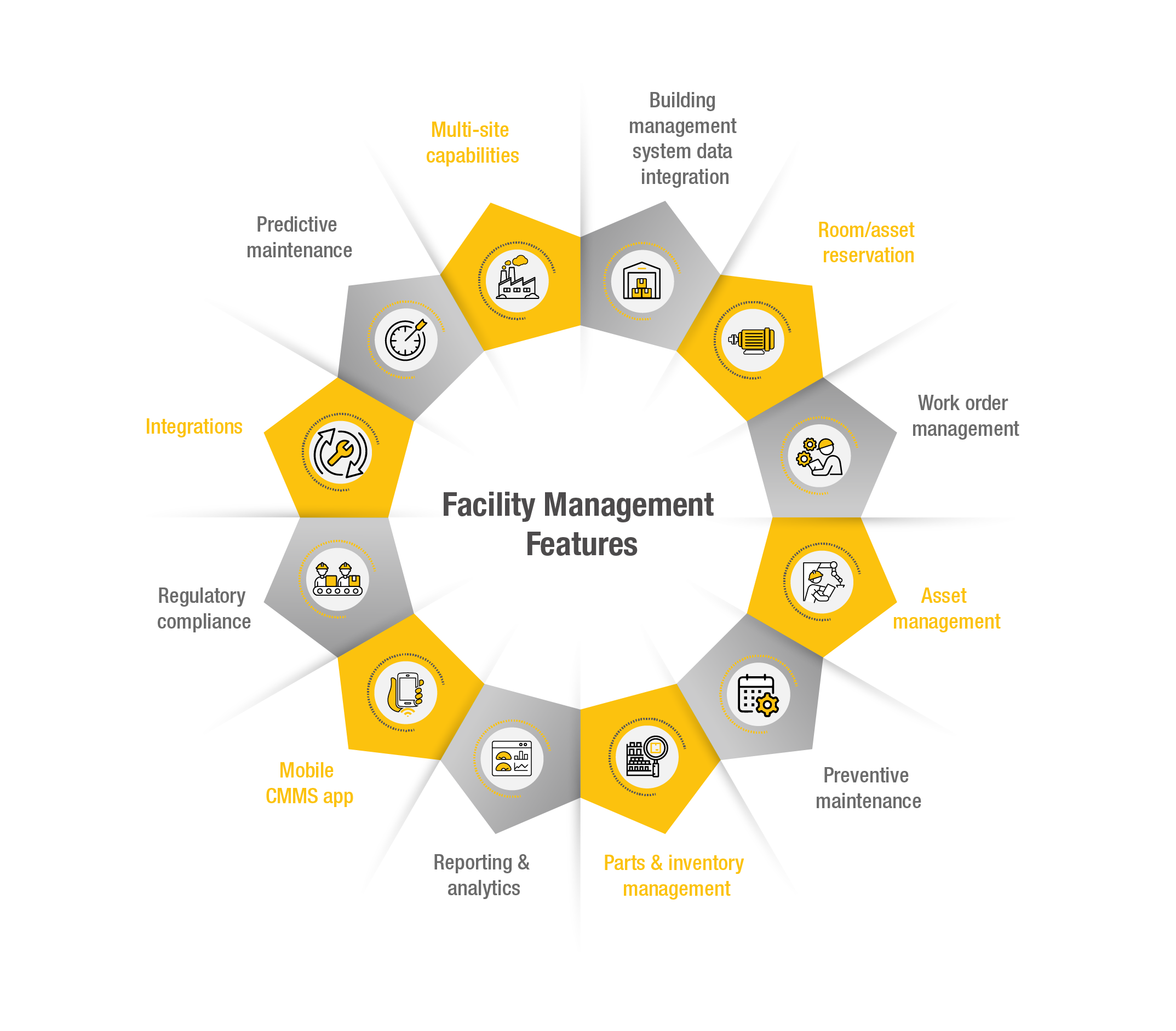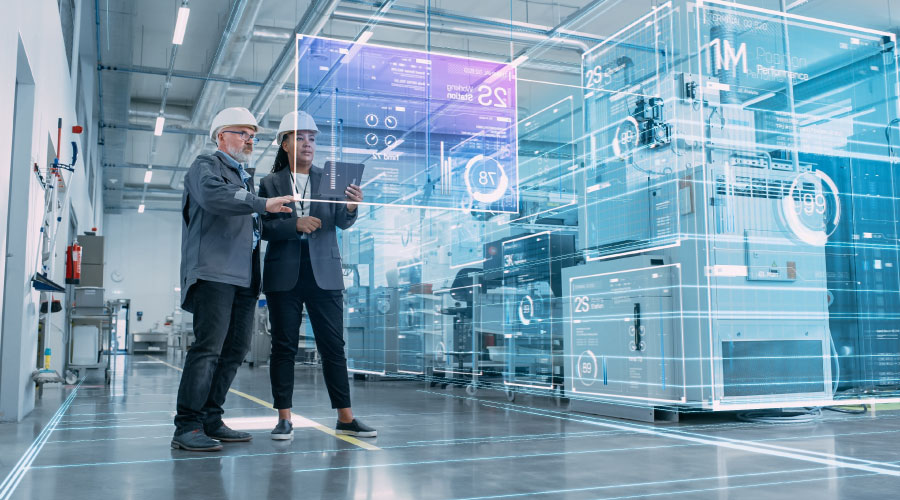Why Facility Management is Critical for Possession Longevity
Why Facility Management is Critical for Possession Longevity
Blog Article
Secret Patterns Forming the Future of Center Monitoring in 2024
As we expect 2024, the landscape of center monitoring is poised for significant improvement, driven by several crucial trends. The assimilation of wise structure innovations and a change in the direction of data-driven decision-making guarantee to boost functional efficiency while focusing on sustainability in practice. Moreover, the emergence of hybrid job designs is improving office environments, requiring ingenious layout solutions that provide to developing staff member needs. Amid these modifications, the emphasis on owner wellness remains to obtain traction, underscoring the importance of a healthy workplace. How these patterns will manifest in technique stays a vital question for market professionals.
Smart Structure Technologies

Smart building modern technologies include a wide selection of systems, consisting of smart lights, HVAC controls, and security systems. By incorporating these systems, facility supervisors can check and change parameters in real-time, causing substantial reductions in power waste and functional costs. Smart sensors can discover tenancy degrees and adjust lights and temperature level accordingly, guaranteeing that energy is just made use of when needed.
Moreover, these technologies help with improved data collection, permitting organizations to track use patterns and identify chances for further improvements. The implementation of smart building technologies not only adds to sustainability objectives yet likewise produces healthier workplace that can increase staff member performance and fulfillment.
As we move into 2024, the fostering of smart building modern technologies will likely accelerate, reflecting a more comprehensive shift in the direction of even more smart, responsive, and lasting facility administration methods.
Data-Driven Decision Making
Significantly, companies are leveraging data-driven decision making to enhance facility management practices. By using data analytics, facility managers can acquire workable insights that significantly enhance functional effectiveness and resource allotment. The combination of advanced technologies, such as IoT sensors and real-time monitoring systems, makes it possible for the collection of substantial quantities of data on building efficiency, occupancy prices, and power consumption.
This wide range of information allows center supervisors to identify fads, anticipate upkeep demands, and proactively address problems before they rise. As an example, predictive analytics can forecast equipment failures, reducing downtime and repair prices. Furthermore, information visualization tools promote better communication among stakeholders, making sure that informed decisions are made collaboratively.
Furthermore, data-driven strategies enhance tactical preparation by enabling facility supervisors to examine the performance of present techniques and make notified selections pertaining to financial investments in innovation or infrastructure. As organizations progressively prioritize functional excellence, data-driven decision making is positioned to end up being a keystone of successful facility administration approaches in 2024 and past. Ultimately, the capacity to leverage information effectively will equip companies to develop extra reliable, efficient, and resistant centers.
Sustainability and Environment-friendly Practices
The focus on data-driven choice making naturally straightens with the growing focus on sustainability and environment-friendly practices within facility administration. As organizations increasingly prioritize ecological responsibility, facility managers are leveraging analytics to optimize source usage, decrease waste, and reduce carbon footprints. This calculated technique makes it possible for the assimilation of energy-efficient systems, such as LED lighting, clever cooling and heating controls, and renewable resource sources right into center operations.
Additionally, the application of sustainable practices extends past energy usage. Center managers are advertising and embracing green materials recycling efforts to develop a round economy within their facilities. This not Discover More Here just improves the ecological profile of the company yet likewise fosters a culture of sustainability among staff members.
Conformity with environmental laws is another important facet driving the fostering of environment-friendly practices. By making use of information analytics, facility managers can monitor conformity metrics and recognize locations for enhancement, guaranteeing adherence to international and local sustainability requirements.
Hybrid Job Designs
A substantial shift in the direction of crossbreed work models is improving the landscape of center management in 2024. This paradigm incorporates in-office and remote work, demanding a reevaluation of space application, resource allotment, and worker engagement approaches. Organizations are significantly recognizing the relevance of adaptable workspaces that deal with diverse demands and choices.
Center managers must adapt by applying functional workplace styles that support collective initiatives while offering areas for concentrated job. This consists of the integration of technology to facilitate seamless communication and cooperation amongst in-office and remote employees. Smart structure solutions, geared up with sensors and analytics, permit for real-time monitoring of room usage, allowing companies to enhance their settings effectively.
In addition, look at here now hybrid job models emphasize the need for efficient facility monitoring that prioritizes employee experience. This incorporates not only modern technology and area layout however additionally the growth of policies that advertise a well balanced work-life dynamic. As firms navigate this transition, the role of facility management becomes essential in developing an active workplace that cultivates efficiency and drives organizational success. Essentially, the hybrid work model is revolutionizing facility administration, motivating an aggressive approach to satisfy the advancing needs of the workforce.
Improved Resident Wellness
As organizations embrace hybrid job models, a heightened emphasis on resident health is coming to be important to center management strategies. Facility Management. This change recognizes that a completely satisfied and healthy and balanced workforce straight affects productivity and retention rates. Facility supervisors are now focusing on settings that advertise physical and psychological well-being, integrating aspects such as all-natural lighting, biophilic style, and obtainable wellness sources

Modern technology plays an essential function in this advancement. Smart building systems can keep track of ecological factors and adjust settings in real-time, guaranteeing ideal convenience degrees - Facility Management. Comments systems, such as tenancy sensing units and staff member studies, enable facility managers to constantly improve wellness campaigns based on occupant demands.
Conclusion
In 2024, the future of facility management will certainly be dramatically affected by the combination of clever building technologies and data-driven decision-making, cultivating boosted functional efficiency. These trends jointly underscore the developing landscape of center management in response to modern difficulties and opportunities.
Center managers are promoting and taking on green products reusing campaigns to produce a circular economic situation within their facilities.A significant shift towards hybrid work versions is improving the landscape of center monitoring in 2024.Additionally, hybrid work models stress the requirement Learn More for efficient facility monitoring that prioritizes employee experience.As organizations accept hybrid work models, an enhanced focus on occupant health is ending up being important to center administration methods.In 2024, the future of facility administration will certainly be dramatically affected by the combination of wise structure technologies and data-driven decision-making, promoting boosted functional efficiency.
Report this page